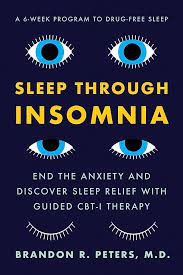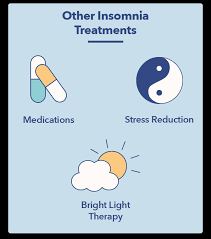The Challenge of Menopause Insomnia and Effective Remedies
Menopause is a natural biological process that marks the end of a woman’s menstrual cycles. Along with hormonal changes, menopause can bring about various symptoms, including hot flashes, mood swings, and insomnia. Insomnia during menopause can be particularly challenging, affecting the quality of sleep and overall well-being.
Common Causes of Menopause Insomnia:
- Fluctuating hormone levels, especially estrogen and progesterone
- Night sweats and hot flashes disrupting sleep patterns
- Anxiety, stress, or mood changes associated with menopausal transition
- Physical discomfort such as joint pain or headaches
Effective Remedies for Menopause Insomnia:
Establish a Relaxing Bedtime Routine: Create a calming bedtime routine to signal your body that it’s time to wind down. This may include reading a book, taking a warm bath, or practicing relaxation techniques like deep breathing.
Maintain a Comfortable Sleep Environment: Ensure your bedroom is conducive to sleep by keeping it cool, dark, and quiet. Invest in comfortable bedding and consider using white noise machines to block out disruptive sounds.
Manage Stress and Anxiety: Practice stress-reducing activities such as yoga, meditation, or mindfulness exercises to calm your mind before bedtime. Counseling or therapy can also help address underlying emotional issues contributing to insomnia.
Stay Active During the Day: Regular physical activity can improve sleep quality and overall health. Engage in moderate exercise earlier in the day to avoid stimulating your body close to bedtime.
Consider Hormone Therapy: Talk to your healthcare provider about hormone replacement therapy (HRT) options that may help alleviate menopausal symptoms including insomnia. HRT should be carefully considered based on individual health needs and risks.
Explore Herbal Remedies: Some women find relief from menopausal symptoms including insomnia through herbal supplements like valerian root, black cohosh, or evening primrose oil. Consult with a healthcare professional before trying any herbal remedies.
In Conclusion
Menopause insomnia can significantly impact a woman’s quality of life during this transitional phase. By implementing lifestyle changes, seeking professional guidance when needed, and exploring alternative remedies like herbal supplements or hormone therapy under medical supervision, women experiencing menopause insomnia can find relief and improve their sleep patterns for better overall health.
Top 7 FAQs About Remedies for Menopause-Related Insomnia
- What causes insomnia during menopause?
- How can menopause affect sleep patterns?
- What are common remedies for menopause-related insomnia?
- Is hormone therapy an effective treatment for menopause insomnia?
- Are there natural remedies or supplements that can help with menopause insomnia?
- What lifestyle changes can improve sleep quality during menopause?
- Should I consult a healthcare provider for my menopause-related sleep issues?
What causes insomnia during menopause?
Insomnia during menopause can be attributed to various factors related to the hormonal changes that occur during this transitional phase in a woman’s life. Fluctuating levels of estrogen and progesterone can disrupt the body’s natural sleep-wake cycle, leading to difficulty falling asleep or staying asleep. Additionally, symptoms like night sweats and hot flashes can cause discomfort and night-time awakenings, further contributing to insomnia. The emotional and psychological effects of menopause, such as increased stress, anxiety, and mood swings, can also play a role in disrupting sleep patterns. Addressing these underlying hormonal, physical, and emotional factors is crucial in managing menopause-related insomnia effectively.
How can menopause affect sleep patterns?
Menopause can significantly impact sleep patterns due to hormonal changes that occur during this natural transition in a woman’s life. Fluctuating levels of estrogen and progesterone can disrupt the body’s internal clock, leading to difficulties falling asleep and staying asleep. Menopausal symptoms such as hot flashes and night sweats can also contribute to sleep disturbances by causing discomfort and night-time awakenings. Additionally, mood swings, anxiety, and stress commonly experienced during menopause can further exacerbate insomnia by affecting the mind’s ability to relax and unwind before bedtime. Overall, the combination of physical discomfort, hormonal fluctuations, and emotional changes associated with menopause can create a perfect storm for disrupted sleep patterns and insomnia in women going through this phase of life.
What are common remedies for menopause-related insomnia?
Common remedies for menopause-related insomnia often include establishing a relaxing bedtime routine, maintaining a comfortable sleep environment, managing stress and anxiety through practices like meditation or yoga, staying physically active during the day, considering hormone therapy under medical guidance, and exploring herbal remedies such as valerian root or black cohosh. These remedies aim to address the underlying factors contributing to menopause-related insomnia and help women improve their sleep quality during this transitional phase of life. It is important for individuals experiencing menopause-related insomnia to consult with healthcare professionals to determine the most suitable treatment options for their specific needs.
Is hormone therapy an effective treatment for menopause insomnia?
Hormone therapy is a commonly considered treatment option for menopause symptoms, including insomnia. Estrogen therapy, a form of hormone therapy, has been shown to help alleviate menopausal symptoms such as hot flashes and night sweats, which can contribute to sleep disturbances. By stabilizing hormone levels, estrogen therapy may improve sleep quality for some women experiencing menopause-related insomnia. However, it is essential to consult with a healthcare provider to discuss the potential benefits and risks of hormone therapy based on individual health needs and medical history before considering it as a treatment for menopause insomnia.
Are there natural remedies or supplements that can help with menopause insomnia?
Many women experiencing menopause insomnia often wonder if there are natural remedies or supplements that can provide relief. Some natural remedies and supplements have shown promise in helping manage menopause symptoms, including insomnia. Herbal supplements like valerian root, black cohosh, and evening primrose oil are popular choices for their potential calming and hormone-balancing effects. Additionally, lifestyle changes such as establishing a relaxing bedtime routine, maintaining a comfortable sleep environment, managing stress through activities like yoga or meditation, and staying physically active during the day can also contribute to improving sleep quality during menopause. It’s important to consult with a healthcare professional before trying any natural remedies or supplements to ensure they are safe and appropriate for individual needs.
What lifestyle changes can improve sleep quality during menopause?
Making specific lifestyle changes can significantly improve sleep quality during menopause. Establishing a consistent bedtime routine that includes relaxation techniques like deep breathing or meditation can signal the body to wind down. Maintaining a comfortable sleep environment by keeping the bedroom cool, dark, and quiet can promote better rest. Engaging in regular physical activity earlier in the day can help regulate sleep patterns and reduce stress levels. Managing stress and anxiety through activities such as yoga or mindfulness exercises can also contribute to better sleep quality. By incorporating these lifestyle changes, women experiencing menopause insomnia may find relief and enhance their overall well-being during this transitional phase.
Should I consult a healthcare provider for my menopause-related sleep issues?
It is highly recommended to consult a healthcare provider for menopause-related sleep issues. Menopause is a complex biological process that can affect each individual differently, and seeking professional guidance is crucial in addressing specific symptoms like insomnia. A healthcare provider can offer personalized advice, conduct necessary assessments, and recommend appropriate treatment options tailored to your unique needs. They can also help rule out any underlying medical conditions contributing to sleep disturbances during menopause, ensuring comprehensive care and effective management of your sleep issues. Consulting a healthcare provider empowers you to make informed decisions about your health and well-being during this transformative phase of life.



